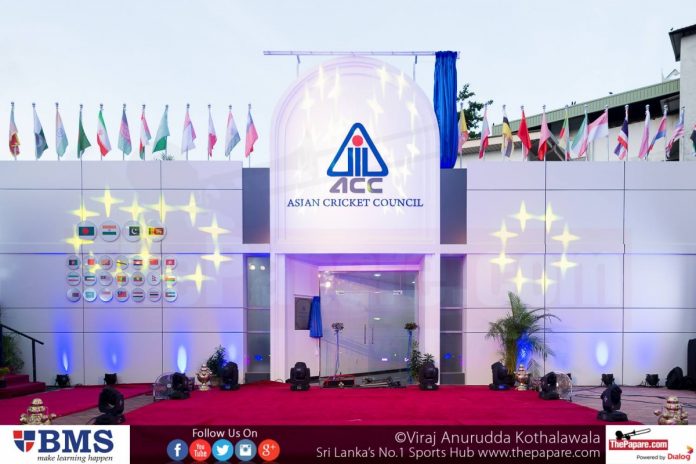The Asian Cricket Council is active in Colombo these days conducting their Under-19 Asia Cup. The regional governing body has become a vibrant force in world cricket contributing significantly financially for member boards and helping the development of the game in many parts of the region.
>>How Neil Perera changed the fortunes of Sri Lankan cricket<<
The need to form an Asian bloc was mooted in early 1980s to challenge the stronghold that England and Australia had in the game at that point. At present it is virtually impossible to make amendments or adjustments to the governance of the game without the consent of the Asian countries, who at most times work in unison.
Australia and England were untouchable at the ICC level as they enjoyed veto power. Even meaningful proposals by member countries could be shot down by either Australia or England by using their veto power. Sri Lanka for example bore the brunt of it as their proposal for Test status throughout 1970s was vetoed either by Australia or England. Their plight eventually ended in 1981 when both nations agreed and Sri Lanka were granted Test status.
Two years after Sri Lanka were granted Test status some of the finest brains in the Asian region came together in New Delhi in September 1983 to form the Asian Cricket Conference. The founding members of the ACC were Sri Lanka, India, Pakistan, Bangladesh, Malaysia and Singapore.
N.K.P. Salve, the former President of Board of Control for Cricket in India became the first President of the ACC while Gamini Dissanayake was elected as Vice-President. Both men were powerful government ministers in their respective countries. They had a vibrant set of officials to take the regional body forward such as Jagmohan Dalmiya, I.S. Bindra from India, Air Marshal Nur Khan from Pakistan, Nuski Mohammad from Sri Lanka and Abdul Rahman Bukathir from UAE.
>>Ana Punchihewa’s visionary thinking creates pathway to success<<
A year after the formation of ACC, the first Asia Cup was played in UAE. Television revenue generated from the Asia Cup was distributed among member countries helping them to utilize the funds in development of the game.
One of the first major successful efforts by the ACC was to take the Cricket World Cup away from England. The country that had given birth to the game hosted the first three editions of the tournament and the ACC managed to take the 1987 event away from England with Pakistan and India hosting the tournament.
The ICC formed in 1909 was initially known as Imperial Cricket Conference and in 1965 the name was changed to International Cricket Conference. Year 1993 was a major turning point in cricket governance as England and Australia lost the veto power. The name of the governing body too was changed to International Cricket Council with former West Indian great Sir Clyde Walcott taking over as the first non British President. Until then, MCC President had continued as President of the ICC and MCC Secretary was ICC Secretary. But all that was changed in 1993 as ICC became an independent body and a more democratic one.
The Asian nations again were successful in brining the 1996 World Cup to the sub-continent and Neil Perera, the Secretary of Board of Control for Cricket in Sri Lanka had played mediator role between India and Pakistan to ensure a joint bid was put through by the Asian bloc.
The happenings during that tournament where West Indies and Australia refused to honour their World Cup commitments in Colombo due to security reasons further strengthened Asia’s case.
President of the Sri Lankan Board Ana Punchihewa suggested to the Secretary of the Organizing Committee Jagmohan Dalmiya that the time was ripe for an Asian to take over as the head of the ICC. A year after the 1996 World Cup, Dalmiya went onto become the President of ICC and changed both the economics and governance of the sport.
Dalmiya was instrumental in taking the headquarters of the ICC away from Lord’s to Dubai. Commercially the move was profitable as United Arab Emirates was providing whole lot of tax relaxations for the sporting body. Dalmiya also was successful in getting lucrative television bids for ICC events such as the World Cup. He also introduced the ICC Champions Trophy with the first edition of the tournament taking place in Bangladesh in 1998.
>>Jagmohan Dalmiya seals Sri Lanka’s fate<<
As there was popular television demand for new events like Champions Trophy, ICC’s finances improved remarkably and a body that had existed for many decades on subscriptions paid as membership fee found that they not only had enough money to run the game professionally but could dole out large sums of grants for member countries for development projects.
Asian Cricket Council, an organization that had humble beginnings became a vibrant body that could challenge the world order and change the dynamics of cricket in whole.




















